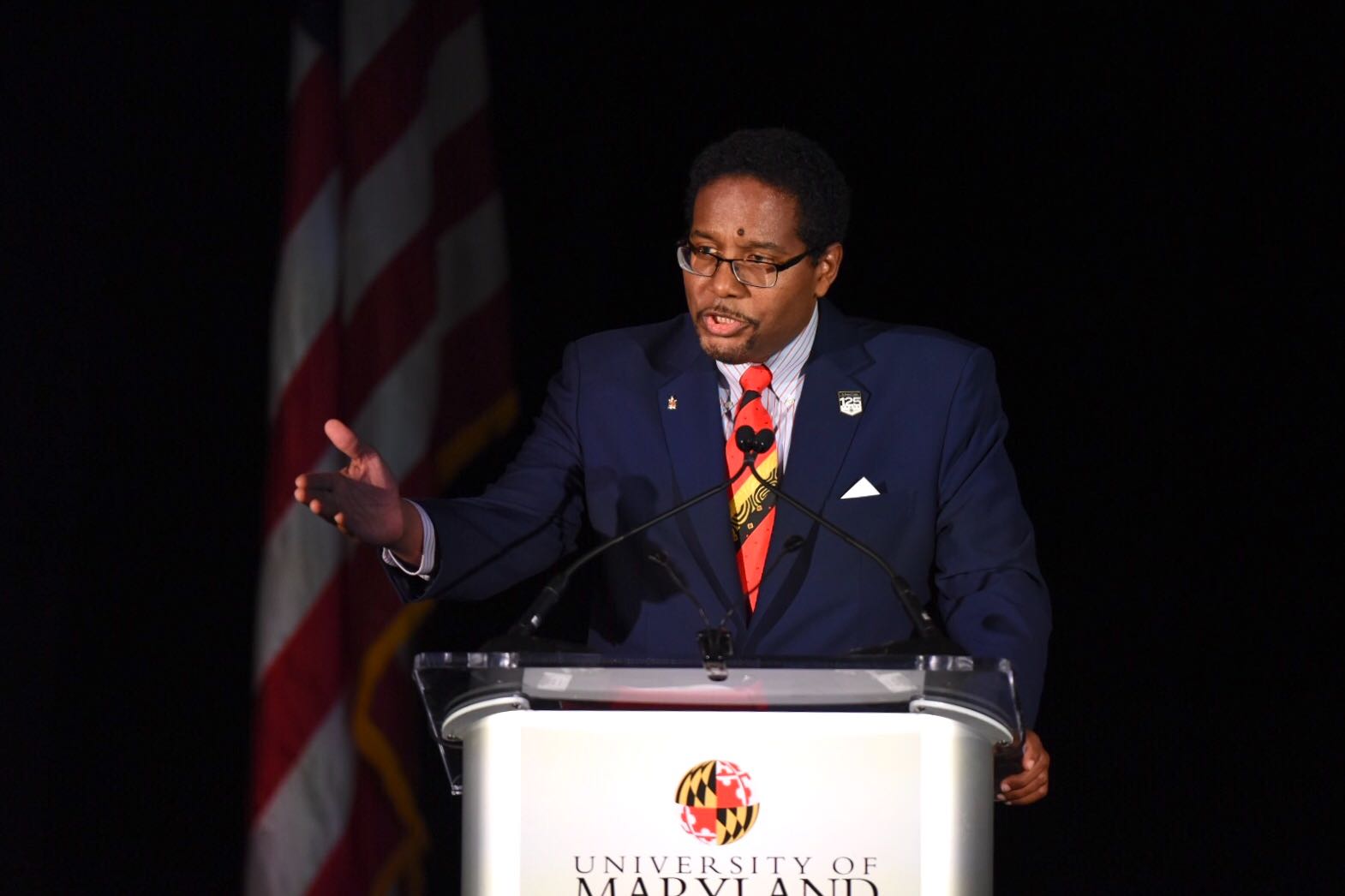New University of Maryland President Darryll Pines marked his first day on the job Wednesday by announcing a series of actions aimed at supporting students on campus, including bolstering the school’s mental health services and enhancing community policing.
Over the past several weeks, there have been calls for the university to defund and reform University Police. Pines announced the university would be creating a new task force aimed at enhancing community policing and building trust with the university community.
“It will examine procedures and practices related to bias, racial profiling, and the use of force, including those that result from our partnerships with other law enforcement agencies; protocols to ban the use of choke holds; and banning the use of pepper spray during peaceful gatherings,” Pines wrote.
In addition, Pines announced police will divest from the 1033 program, a Defense Department program that provides surplus military equipment and supplies to local police departments. Pines wrote that he “wholeheartedly” supports the decision.
Pines also announced the university will increase staffing for mental health services on campus — something students have long pushed for, citing a lack of resources.
The university will also begin a search “immediately” to hire a coordinator for Immigrant and Undocumented student life, Pines wrote. Previously, the university had said that the position — which is designed to serve the needs of immigrant and undocumented students — would remain vacant in the next academic year, due to a hiring freeze triggered by the ongoing coronavirus pandemic.
Pines also wrote that the university will launch an onboarding program for all new members of the community, which will include training on anti-racism, unconscious bias, diversity and inclusion and sexual misconduct. The program, TerrapinSTRONG, will start with incoming students, staff and faculty, Pines wrote in the email.
“One of the problems that we have at University of Maryland is that we don’t equally across the university onboard all of our citizens in a common way to the ideals and values that we really, really care about,” Pines told The Diamondback earlier this week. “I want to make sure that that happens every year.”
[Incoming President Pines emphasizes solidarity amid COVID-19 and anti-racism protests]
Pines also stated that he has proposed names for the two newest dorms on campus. To honor the university’s “rich diversity,” he has suggested naming the dorms after Hiram Whittle, the first African American male to be admitted to the university; Elaine Johnson-Coates, the first African American female to graduate with a degree in education; Pyon Su, the first Korean student to receive a degree from any American college or university; and Chunjen Constant Chen, the first Chinese student to enroll in Maryland Agriculture College.
“Each exemplifies Terrapin grit, desire and determination to succeed against all odds,” Pines wrote.
With universities across the country changing the names of buildings or departments with ties to slavery or the Confederacy, Pines also told The Diamondback that he hopes to review the names of old and new buildings on the campus “to demonstrate our commitment to diversity and inclusion.”
In December, a moratorium on the changing of building names will expire — five years after the name of the Maryland Stadium was changed from “Byrd Stadium” because its namesake supported segregation.
Some buildings that remain at the university, including Francis Scott Key Hall, are named for people who once supported slavery.
“I’m open to engaging the community to review best practices for [changing building names],” Pines said.
[“An open door policy”: How Darryll Pines plans to rebuild trust as UMD’s next president]
Pines also further explained an action introduced in last week’s email detailing the university’s anti-racism action plan. This summer, a task force will reconvene to review the current General Education diversity requirements to “consider enhancing current courses or creating new ones” that would foster understanding of race, sexual orientation and more.
Pines also addressed some of his long-term goals as president. He wrote that a main focus of his presidency will be to advance faculty and staff diversity.
“We all benefit from voices, experiences and perspectives different from our own,” Pines wrote. “And our students will be better prepared to become the next generation of scholars, scientists, artists and leaders in government, business, academia, and non-profit sectors when they have access to diverse faculty and staff.”
The university will create a faculty-led Research Leaders Fellows Program “to develop and mentor the next generation of research leaders.” Pines also wrote he will launch a series of virtual listening sessions this summer with members of the university community.
“I am energized and optimistic about our shared future of excellence,” Pines wrote. “We have rightfully set high expectations for ourselves, and I have every faith that, working together, we will live up to our ambitious vision.”



